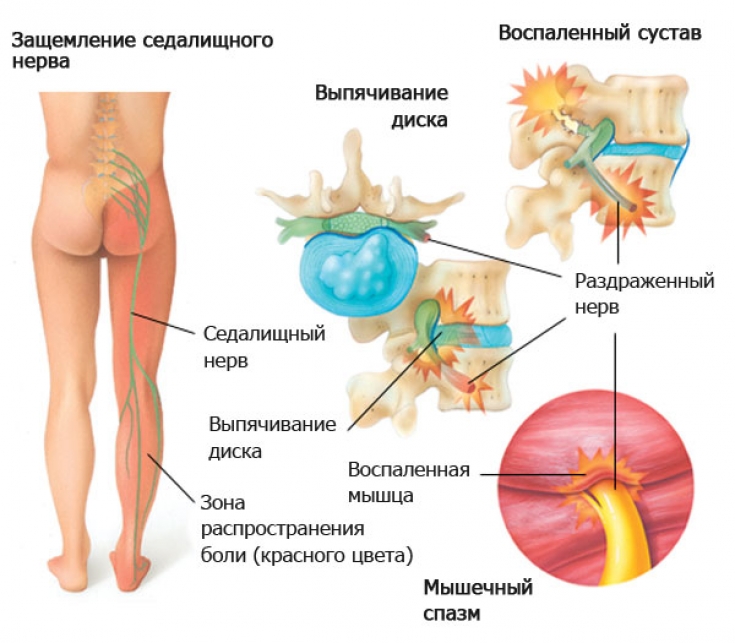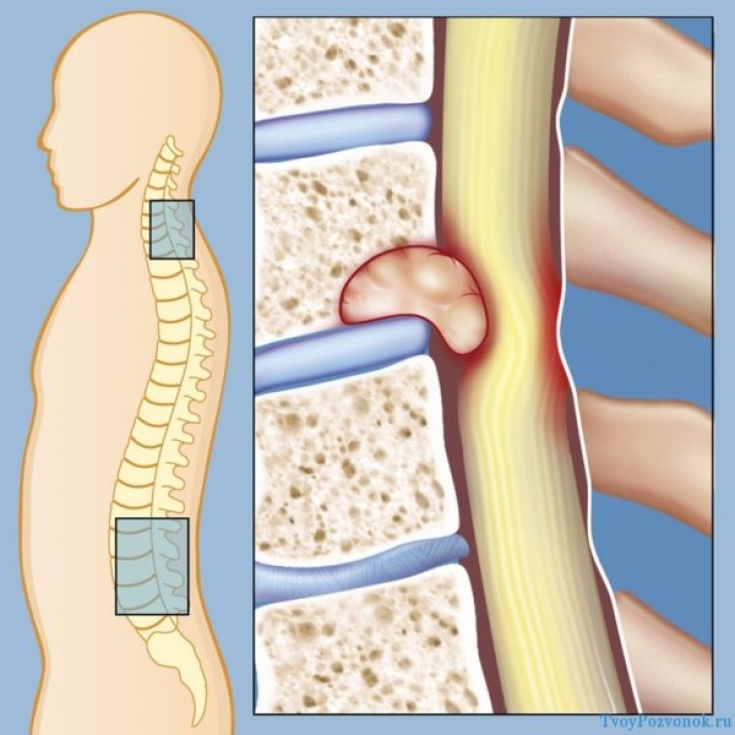Nerves extend from the brain and spinal cord and are involved in transmitting important signals throughout the body. If you have a pinched nerve (nerve compression), the body tries to tell you about it by reacting to the pinched nerve with pain, which should not be ignored.
Injuries caused by a pinched nerve can range from minor and temporary to serious and long-term.
The sooner the doctor makes a diagnosis and begins treatment of a pinched nerve, the sooner you will get rid of the unpleasant consequences of nerve compression. In some cases, the damage caused by a pinched nerve cannot be reversed, but the pain and other symptoms will disappear with proper treatment of the pinched nerve.
Why did the nerve get pinched – main reasons
Nerve is pinched as a result of pressure on the nerve. This pressure can come from repetitive movements, staying in one position for a long time, and bending your elbows while you sleep.
Nerves are most vulnerable where they pass through narrow spaces and are not protected by sufficient soft tissue.
Nerve compression often occurs when the nerve is compressed between tissues such as:
- links;
- tendons;
- bones.
For example, inflammation or pressure on the root of a nerve that exits the spine can lead to neck or back pain. Also in this case, the pain may spread from the neck to the shoulders and arms (cervical radiculopathy); the pain may also radiate to the leg and feet (lumbar radiculopathy or sciatic nerve pain).

Such symptoms may occur as a result of changes that occur in the discs and bones of the spine. For example, if the – herniated disc – pressure can act on the spinal nerve.
A pinched nerve in the neck or arm can also cause pain in:
- elbows;
- hands;
- wrists;
- fingers.
This can lead to the following diseases:
- peripheral neuropathy;
- carpal tunnel syndrome;
- tennis elbow.

If the nerve is pinched for a long time, the protective barrier surrounding the nerve can break down and cause fluid to accumulate, resulting in:
- swelling;
- excessive pressure;
- scarring.
Symptoms of a pinched nerve in any part of the body
Nerve compression may be accompanied by just one symptom – pain. In some cases, other symptoms may appear – without pain.
Common symptoms of a pinched nerve include:
- pain at the site of compression, such as in the neck or lower back;
- pain radiating to other parts of the body, e.g. sciatica, sciatic nerve pain;
- numbness or tingling;
- tingling or burning in the limbs;
- weakness, especially during certain activities;
- Sometimes, during certain movements, such as turning the head or stretching the neck, the pain may increase.
What symptoms begin with neuritis of the facial nerve? This is important for everyone to know!
Treatment of a pinched nerve – when to see a doctor
The duration of symptoms may vary from person to person. Treatment also depends on the degree and cause of nerve compression.
Three exercises to unblock the pinched sciatic nerve.
Pain may be relieved or stopped by keeping the affected area immobile and avoiding activities that aggravate the symptoms – in most cases, this is enough to treat a pinched nerve.
If the symptoms persist or the pain gets worse, see a doctor, as one or more types of treatment may be needed to relieve the swelling in the tissue surrounding the nerve.
In more serious cases, a pinched nerve may require removal of material that is pressing on the nerve, such as:
- scar tissue;
- disc material;
- parts of bones.
Treatment for a pinched nerve may include:
1. non-steroidal anti-inflammatory drugs such as aspirin, ibuprofen or naproxen – to relieve swelling;
Non-steroidal anti-inflammatory drugs - pain control.
2. oral corticosteroids – to relieve swelling and pain;
3. local anesthesia – "blockades" are briefly applied to relieve severe pain;
4. steroid injections – reduce swelling and allow inflamed nerves to recover;
5. physiotherapy – to strengthen muscles and ligaments;
6. splint or soft collar – to limit movement and muscle relaxation;
7. surgical operation – may be needed to correct serious problems that are not amenable to other types of treatment.
Principles and methods of treatment of neuritis of the facial nerve.
Remember that the final diagnosis is made by the doctor, who prescribes the appropriate treatment for a pinched nerve, based on the cause and extent of the damage. Self-medication can be dangerous for your health.
Try gymnastics that will help you strengthen your back and give you tone and good mood!






Add a comment